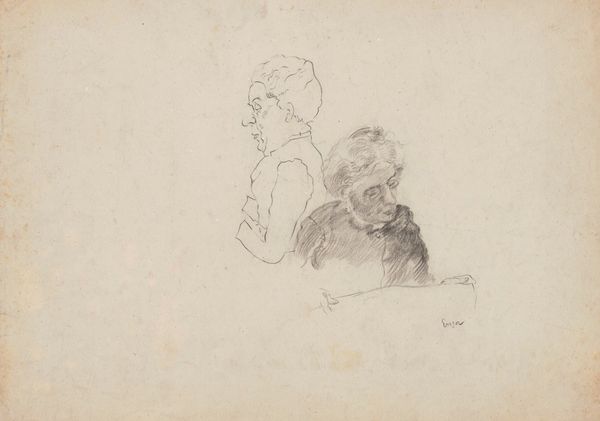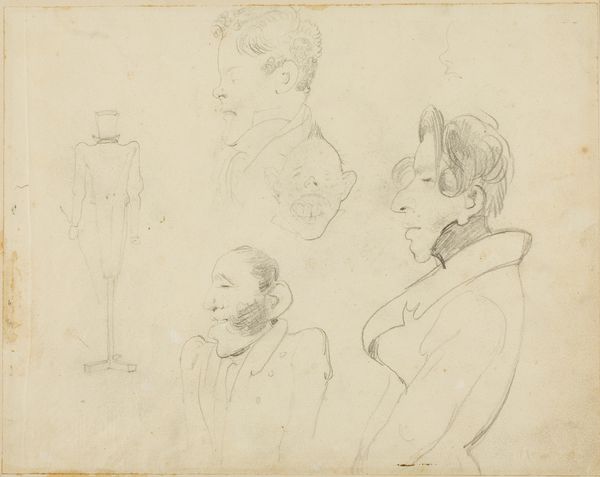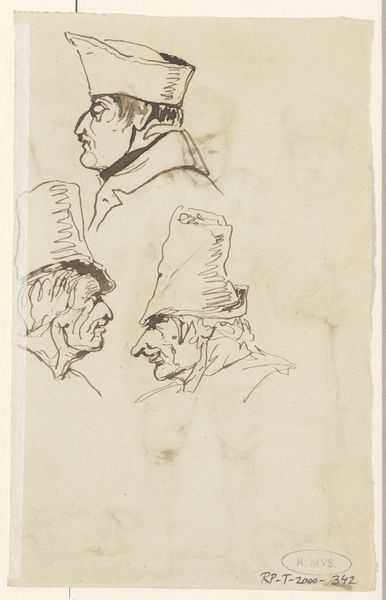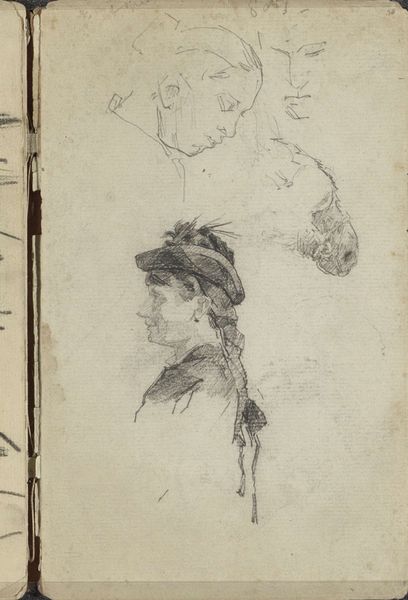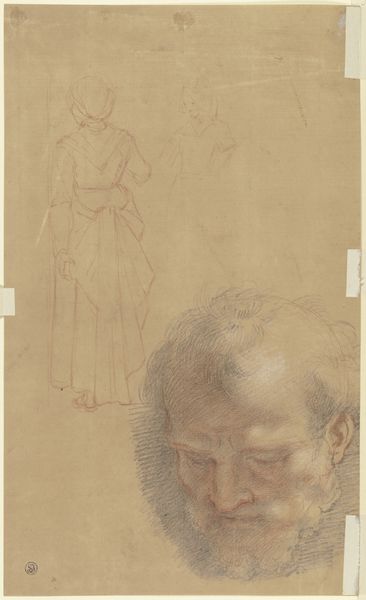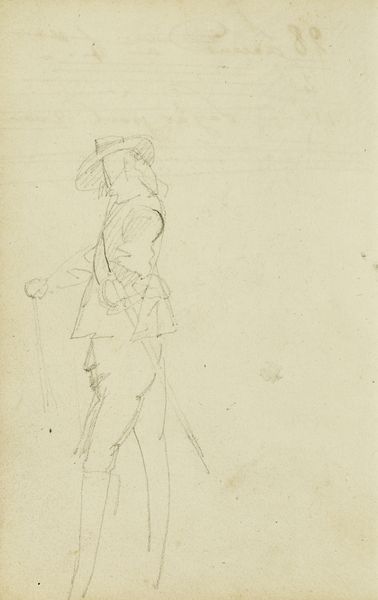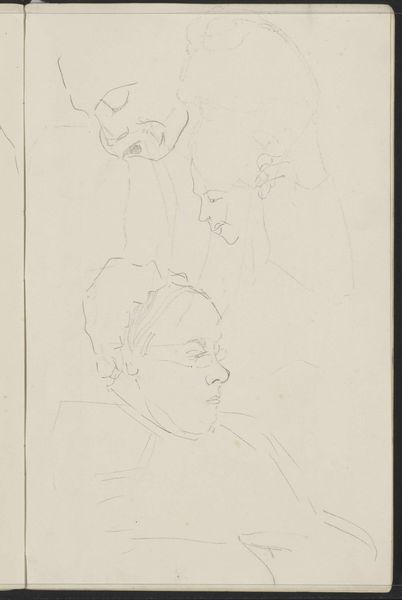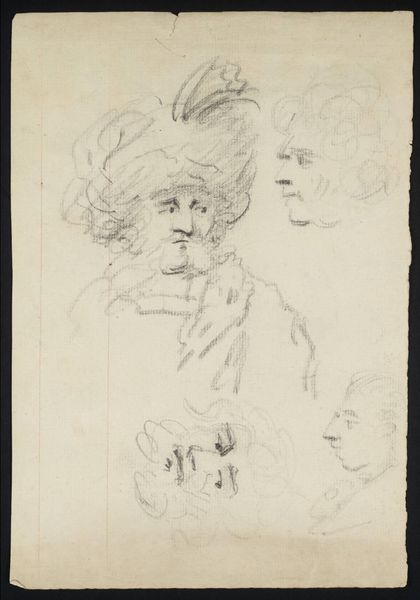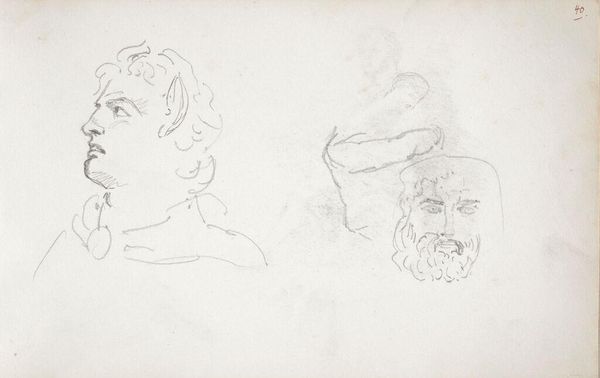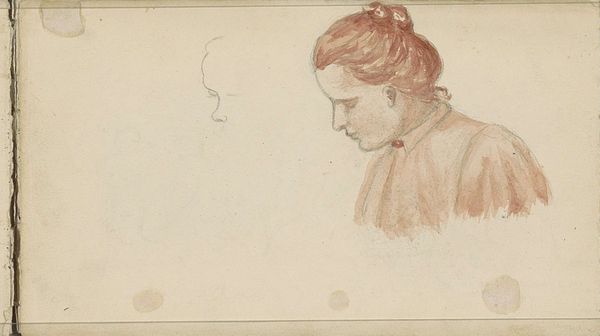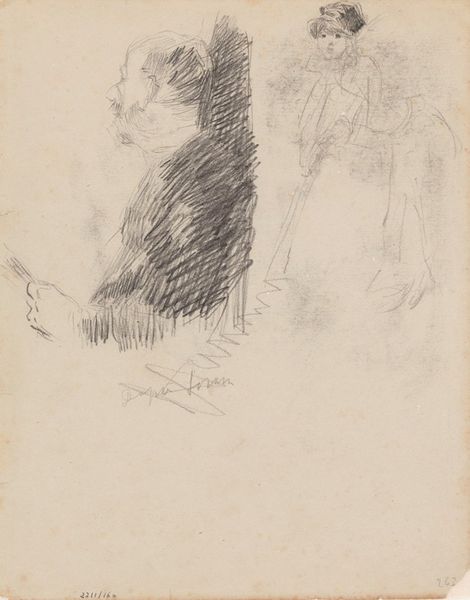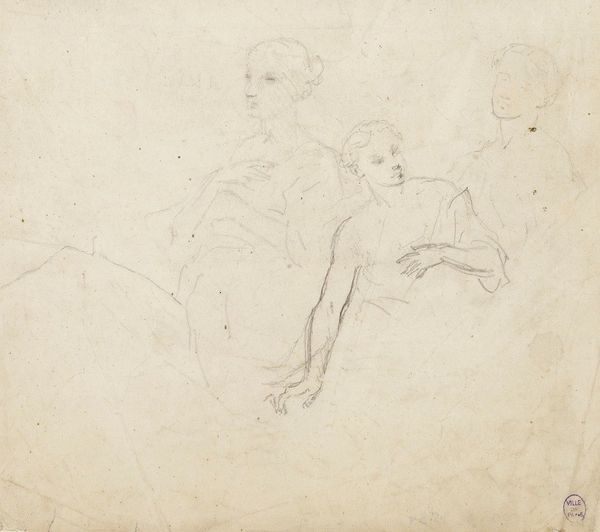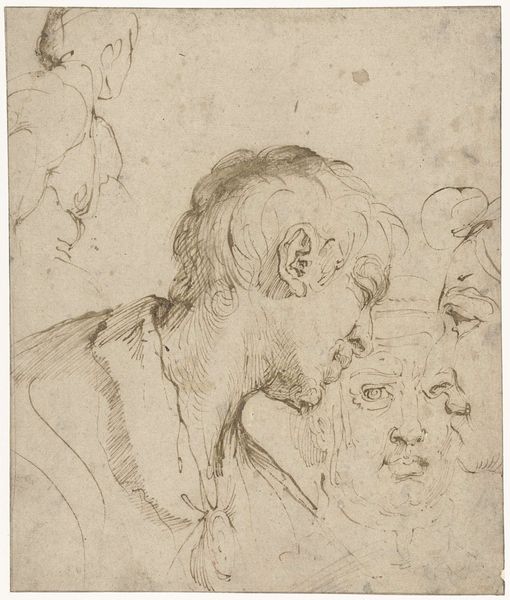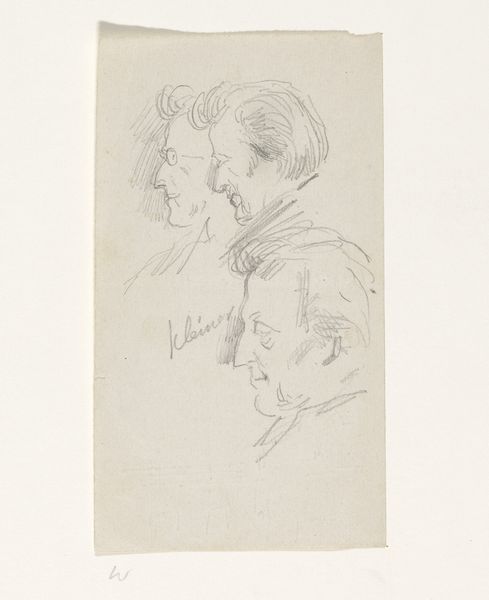
drawing, pencil
#
portrait
#
drawing
#
pencil sketch
#
romanticism
#
pencil
#
portrait drawing
#
history-painting
#
academic-art
Copyright: Public Domain: Artvee
Editor: Here we have Théodore Géricault's "Study of Two Soldiers," made between 1818 and 1819 using pencil. I'm immediately struck by the contrast between the defined facial features of the soldier on the left versus the softer, more ambiguous lines of the figure on the right. How do you interpret the significance of these stylistic choices? Curator: It is astute to notice such contrast, pointing at the careful modulation between form and space. Observe the rigorousness of lines: hatched, cross-hatched, straight, or curved; they define shape, mass, and tone. How might we regard Géricault’s attention to anatomical detail as critical to the work’s formal dynamism? Editor: Well, I guess focusing on anatomy emphasizes a certain realism. Do you think that perhaps it might reflect some academic standard that Géricault felt beholden to at the time? Curator: It is worth pondering if such meticulous and precise depictions of military men— their clothes, the cut of their faces, etcetera— might stand as signifiers of political intent. What is also worth discussing is how Géricault’s composition contributes to the reading of content here. Editor: So you're saying that beyond being merely studies, the structure itself, this combination of two soldiers with their differentiated level of definition, adds another layer to its impact? Curator: Precisely! Notice that the very arrangement allows for a multifaceted viewing experience, oscillating between a focus on line work, composition and historical underpinnings. The pencil strokes alone guide the gaze. Editor: I never thought about pencil strokes being so important in defining the artwork's character! This has been an illuminating new lens. Curator: Indeed, art unveils new depths once we examine not only *what* is represented, but also *how*.
Comments
No comments
Be the first to comment and join the conversation on the ultimate creative platform.
